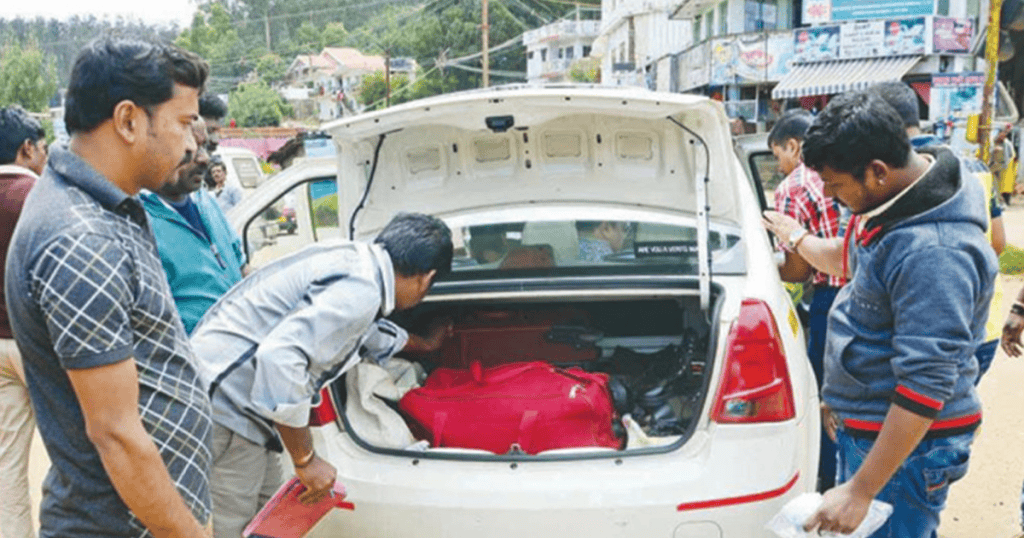Avoid Fines in Ooty & Kodaikanal, 28 Plastic Items Banned in the Nilgiris
9 June 2025, 6:18 pm
UPN360 Advertorial
If you’re planning a trip to the serene hills of Ooty or Kodaikanal, there’s an important update you need to know before you pack: the Tamil Nadu government, following a directive from the Madras High Court, has banned 28 single-use plastic items across the Western Ghats region including the Nilgiris and Dindigul districts. This strict move aims to protect the fragile ecosystem of these hill stations from further plastic pollution, which has been a growing concern due to rising tourist numbers.

What’s Banned?
The ban includes the manufacture, storage, transport, sale, and use of common plastic items such as:
- Plastic water and soft drink bottles (PET bottles)
- Plastic carry bags (irrespective of thickness)
- Plastic-coated cups, plates, and spoons
- Cling film and plastic food wrappers
- Thermocol products
- Plastic straws and stirrers
- Plastic flags, banners, and buntings
- Sachets and water pouches
This means you won’t be able to buy or carry any of these products into Ooty, Kodaikanal, Coonoor, Kotagiri, or other tourist zones in the Nilgiris.
What Happens If You Break the Rules?
The authorities are not taking this ban lightly. Here’s what violators can expect:
- A fine of ₹500 for the first offence
- ₹1,000 for repeat offences
- Confiscation of plastic items
- Seizure of vehicles transporting banned items
- Cancellation of trade licenses or vehicle permits in severe cases
The district administration has already launched enforcement drives in markets, entry checkpoints, and popular tourist spots. Over ₹30,000 in fines have already been collected from violators in Ooty alone in recent weeks.
Why the Ban?
The Nilgiris and Kodaikanal are part of the Western Ghats, a UNESCO-recognized biodiversity hotspot. Every year, thousands of tons of plastic waste are generated during tourist seasons, harming wildlife, choking streams, and contaminating the soil.
Plastic bottles, cups, and wrappers often end up in forest trails, tea plantations, and waterfalls. Animals such as bison, elephants, and monkeys suffer when they ingest this waste. The plastic pollution also clogs drains, increases landslide risks, and spoils the natural beauty that attracts visitors in the first place.
Read More: 9 Best Places to Visit Near Coimbatore Within 100 km in 2025
What Tourists Should Do Instead
Here’s how you can be a responsible and eco-conscious visitor:
1. Carry Reusables
Bring your refillable steel or glass bottles. Avoid purchasing bottled water; there are RO refill stations and water ATMs being installed at various points in Ooty and Kodaikanal for tourists.
2. Pack in Cloth or Paper
Avoid plastic-wrapped snacks or toiletries. Use cloth bags, paper envelopes, or biodegradable containers instead.
3. Say No to PET Bottles
Even if local shops sell them, don’t buy plastic water or soda bottles. Use tin cans or reusable tumblers, many of which are now available on a deposit-return basis (pay ₹20–₹50, and get it back when you return the container).
4. Support Local Eco-Friendly Vendors
Look for shops and stalls that use leaf plates, banana leaves, areca nut cups, or steel plates. These not only help the environment but also support local green businesses.
5. Cooperate at Checkpoints
Be prepared for inspections at entry points, bus stands, and railway stations. Declare any plastic items and avoid carrying banned materials.
Travel Green
As you plan your eco-friendly journey to the hills. A travel service provider based in Coimbatore offers reliable car rental services, including Innova and Force Urbania rentals, perfect for a comfortable, convenient, and environmentally conscious road trip to Ooty or Kodaikanal.
Final Thoughts
The plastic ban in Nilgiris is a bold and necessary step to preserve the pristine environment of Ooty and Kodaikanal. As a visitor, your cooperation is essential. A little effort, like bringing your bottle, skipping that plastic snack wrapper, or using cloth bags, can go a long way in protecting the hills for future generations. So, before you zip up your travel bag, double-check for banned items and swap them out for sustainable alternatives. Travel light, travel green, and let’s keep the Nilgiris beautiful.
